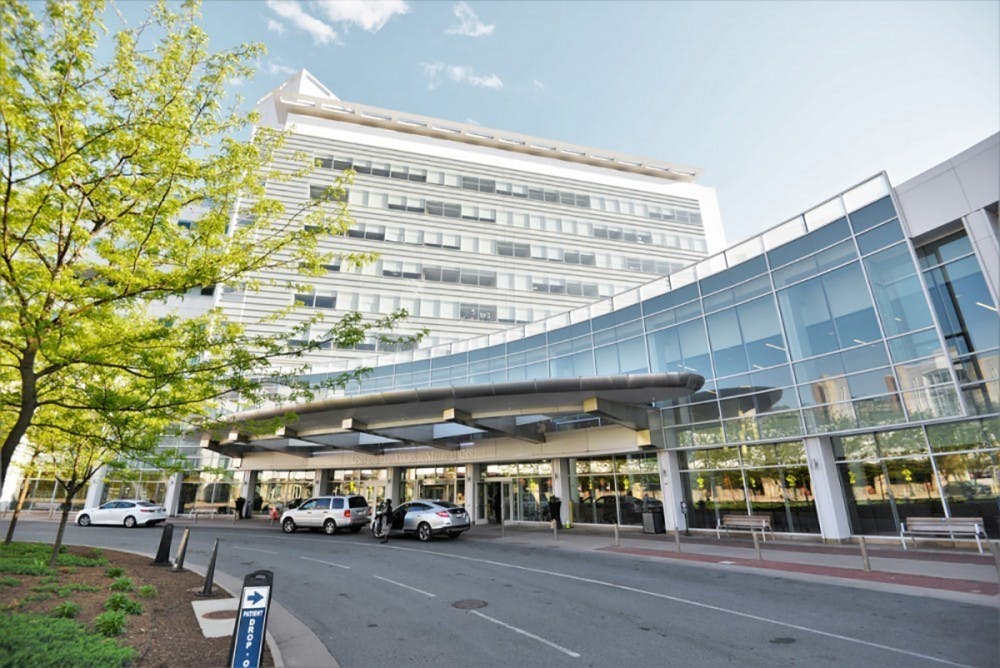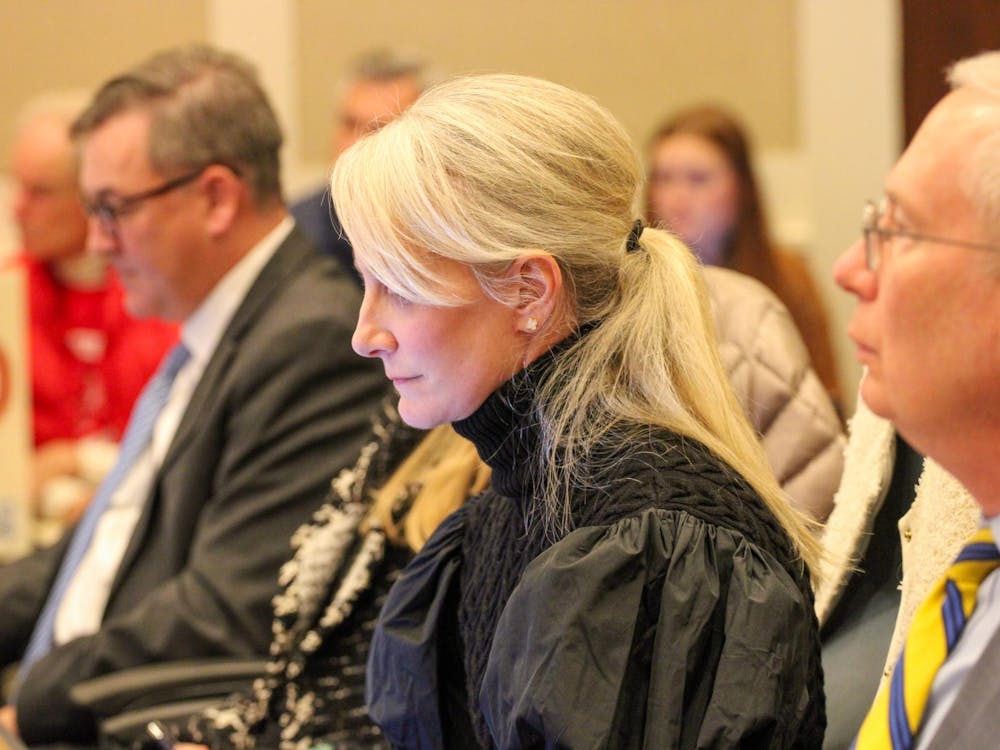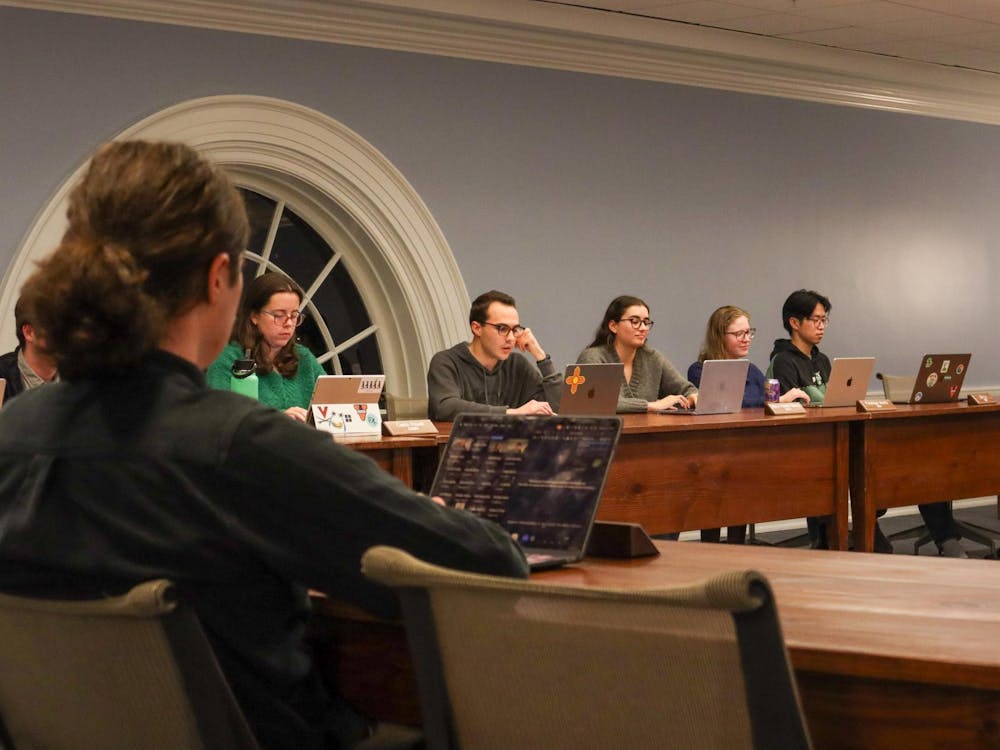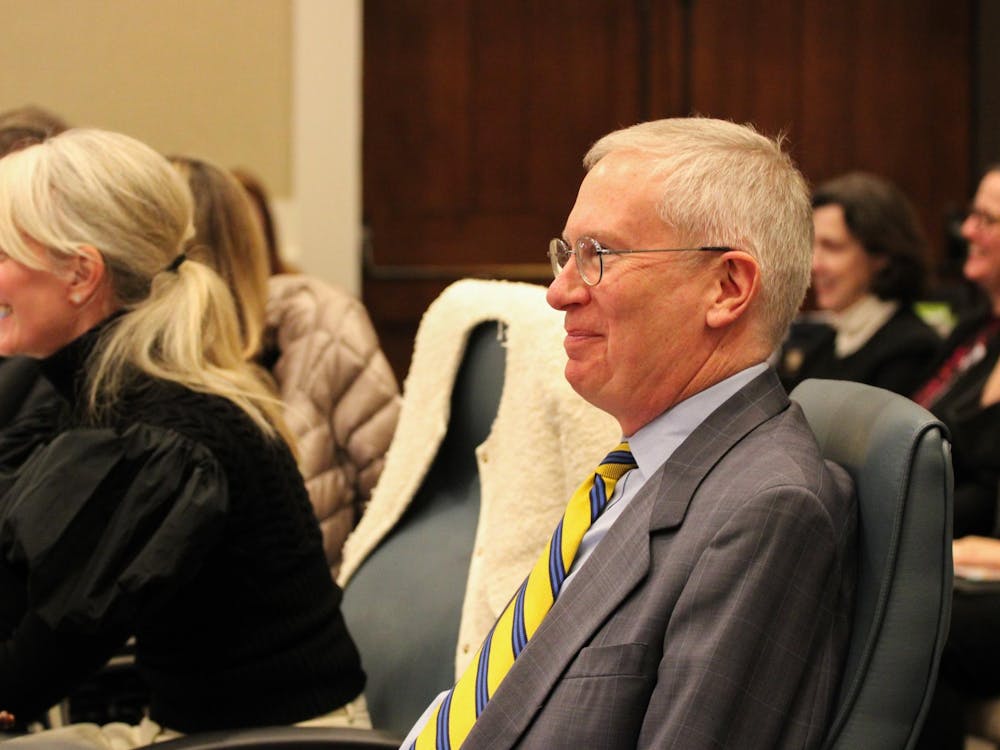Provost Liz Magill hosted a virtual town hall Monday alongside Mitchell Rosner, chair of the department of medicine, and infectious diseases expert Costi Sifri to discuss the Delta variant, which is currently the most prevalent strain of the coronavirus present in the Charlottesville community. Rosner and Sifri also provided insight as to why mandated asymptomatic testing is no longer part of the University’s COVID-19 guidelines.
To be eligible to attend classes on Grounds in the fall, all University students were required to show proof of vaccination unless they could provide evidence of a medical or religious exemption. As of Aug. 23, 97 percent of students at the University are vaccinated — a percentage which is higher for students living on Grounds, Magill added.
Additionally, Magill noted that 92 percent of University staff and 96 percent of research and teaching faculty have received the COVID-19 vaccine. Magill said that the University is monitoring the situation on a daily basis.
“Along with the president and academic leaders, our faculty, our chairs, associate deans, have put an emphasis on … a responsible return to the in-person experience that is a hallmark of U.Va. for teaching,” Magill said. “Being in person as a University has been a key part of who we are, and the delivery of our teaching mission in person — responsibly, from a public health perspective — is something we have put a priority on after these long many months of COVID.”
Rosner highlighted the high transmissibility of the Delta variant, comparing it to the transmissibility of chickenpox. He added that research is being conducted in order to determine if the Delta strain is associated with the increase in hospitalizations and deaths that the U.S. is experiencing. During the week of July 3, there were around 2 hospitalizations per 100,000 people, but that number rose to 10 hospitalizations per 100,000 people the week of Aug. 7.
Ultimately, Rosner concluded that it is very clear that the majority of hospitalizations and COVID deaths in the U.S. are occuring within the unvaccinated population.
According to Sifri, U.Va. Health began to provide third doses of the Pfizer COVID-19 vaccine last week to individuals that are immunocompromised. While COVID-19 vaccines are working well in preventing severe illness and death, a third booster shot is aimed at helping vaccinated people maintain protection amidst the more severe Delta variant.
According to the Centers for Disease Control, individuals are eligible to receive an additional dose of the vaccine if they have been receiving cancer treatment, received an organ transplant and are taking medicine to suppress the immune system, have moderate or severe primary immunodeficiency or have advanced or untreated HIV infection, among other diseases.
Booster vaccines for individuals that do not have a weakened immune system will be made available sometime at the end of September, per guidance from the White House. Sifri added that both the Centers for Disease Control and Prevention and Food and Drug Administration must make final decisions regarding booster shots.
Rosner also expanded on the reason why the University has decided not to continue mandated asymptomatic prevalence testing like it did last year. Rosner explained that the current situation surrounding the pandemic is very different — while last year it made sense to require weekly testing because no one had been vaccinated and more of the population was vulnerable, this year it would be less effective given high vaccination rates.
“[Last academic year] we had very few tools to control the pandemic, and we used prevalence testing to find cases,” Rosner said.
Rosner reassured attendees that Grounds is one of the safest places to be given the high vaccination rates in addition to the indoor mask mandate, which was implemented Aug. 9 and will be reevaluated no later than Oct. 1.
“Given vaccination rates in excess of 94 percent, Grounds will actually be one of the safest places you can be during the pandemic,” Rosner said. “The risk of contracting the virus will be much higher in community settings than it will be on Grounds.”
The University’s COVID-19 tracker reported 25 new cases of COVID-19 Wednesday, bringing the total number of active cases to 140. The Blue Ridge Health District reported 209 new cases Wednesday and is reporting a high level of transmissibility of the Delta variant in all of its localities. In Charlottesville, 55.9 percent of the population is fully vaccinated, compared to 64.9 percent of Albemarle.
While prevalence testing is not currently being mandated by the University, Rosner made it clear that students are still welcome to get tested for COVID-19 by scheduling an appointment through the Time to Test website.
“For anybody who desires to test there's no restrictions on that,” Rosner said. “If you're interested in getting tested you just have to go and sign up and schedule for a testing time, which is widely available.”







